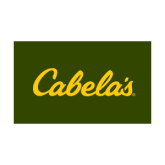Feature Stores
 1800Flowers1 Offers
1800Flowers1 Offers ASOS1 Offers
ASOS1 Offers Athleta1 Offers
Athleta1 Offers AutoZone1 Offers
AutoZone1 Offers buybuy BABY®1 Offers
buybuy BABY®1 Offers Cabela's1 Offers
Cabela's1 Offers Captain Jack Casino1 Offers
Captain Jack Casino1 Offers Champs Sports2 Offers
Champs Sports2 Offers Chegg1 Offers
Chegg1 Offers Chewy1 Offers
Chewy1 Offers
Editor Choice

25% Off Your First Convenience Order
Buy It Now
Reveal coupon
Food & Dining
DoorDash

$4 Off Orders Over $20
Buy It Now
Reveal coupon
Food & Dining
Marco’s Pizza

Free Gift With $50+ Sitewide Purchase
Buy It Now
Reveal coupon
Beauty
DermStore
Find your coupons >>>
- Latest Coupons & Deals
- Hottest
- Popular

Free Gift With $50+ Sitewide Purchase
Buy It Now
Reveal coupon
See All DermStore offers

Online Only! 25% Off Your Order + Free Shipping on Orders $49+
Buy It Now
Reveal coupon
See All Champs Sports offers

Find an Olive Garden Location Near You!

25% Off Your First Convenience Order
Buy It Now
Reveal coupon
See All DoorDash offers

Up to 60% Off Mega Weekend Sale

15% Off With Lovehoney Email Signup

Up to 60% Off Bedroom Furniture

Free Shipping on Orders of $40 Or More

$4 Off Orders Over $20
Buy It Now
Reveal coupon
See All Marco's Pizza offers

Up to 20% Off Select Hot Ad Deals

Free Business Sample Kit

Free bareMinerals Liquid Foundation With $25 Order For Members
Buy It Now
Reveal coupon
See All Sephora offers
Show next



